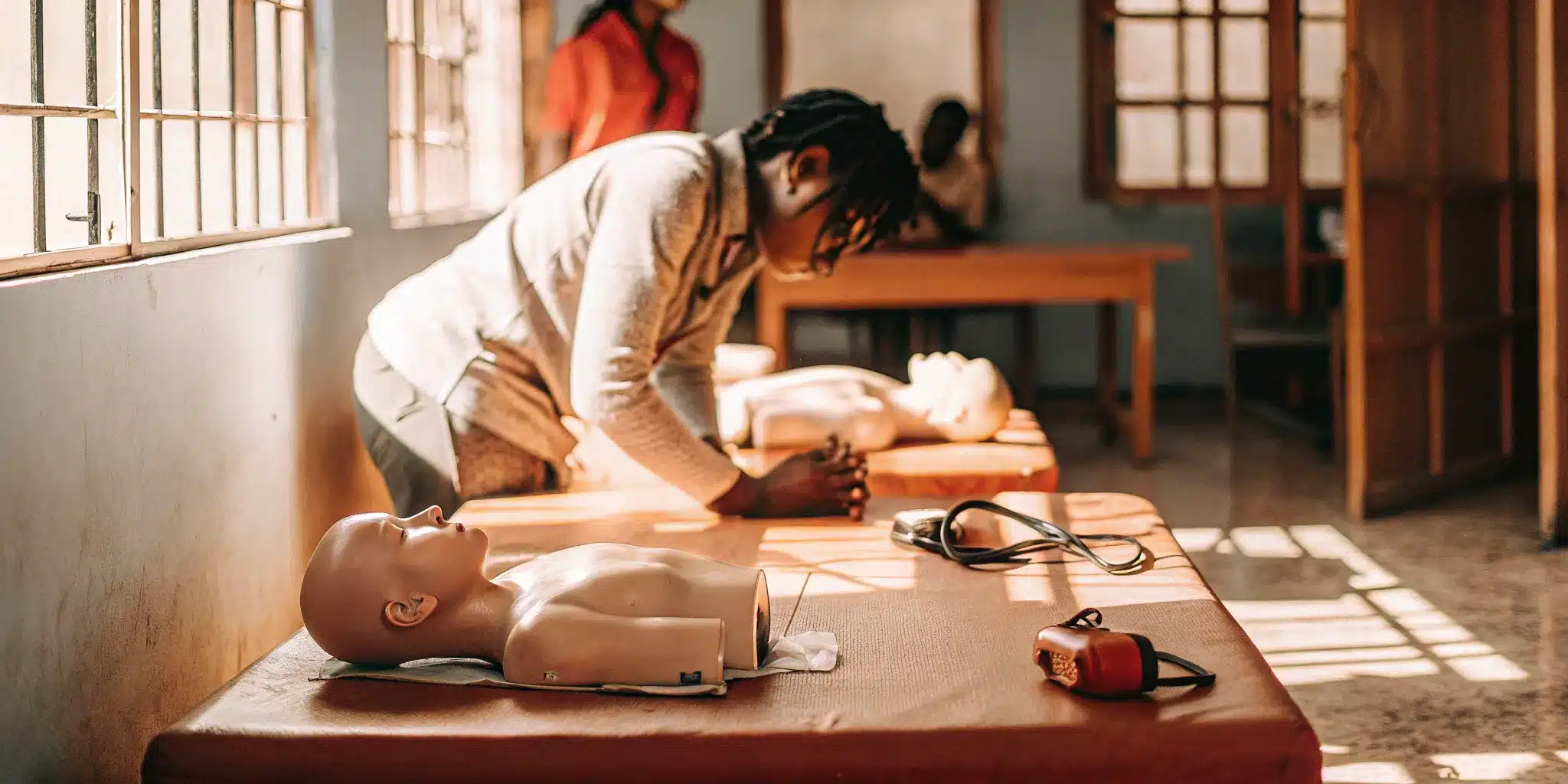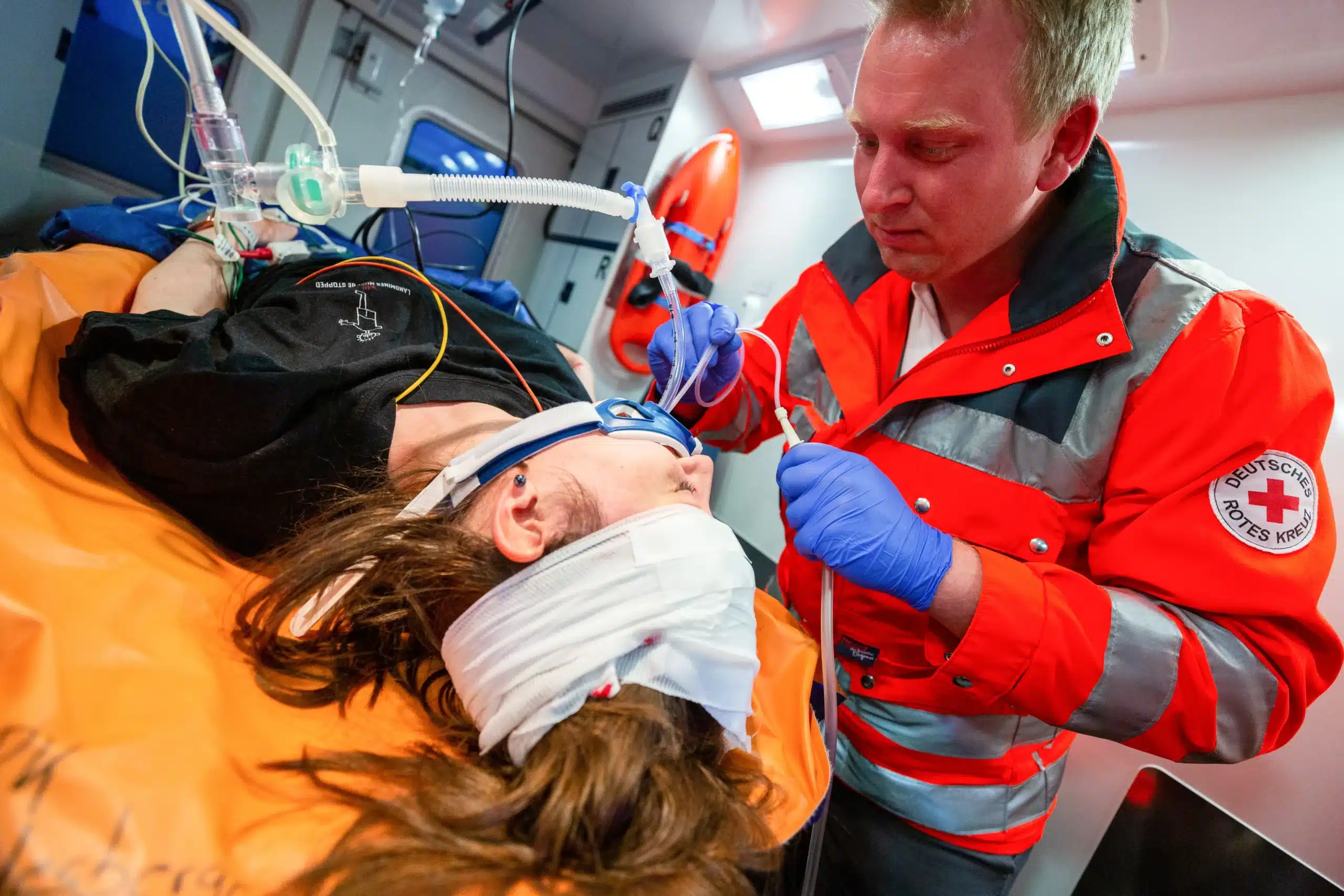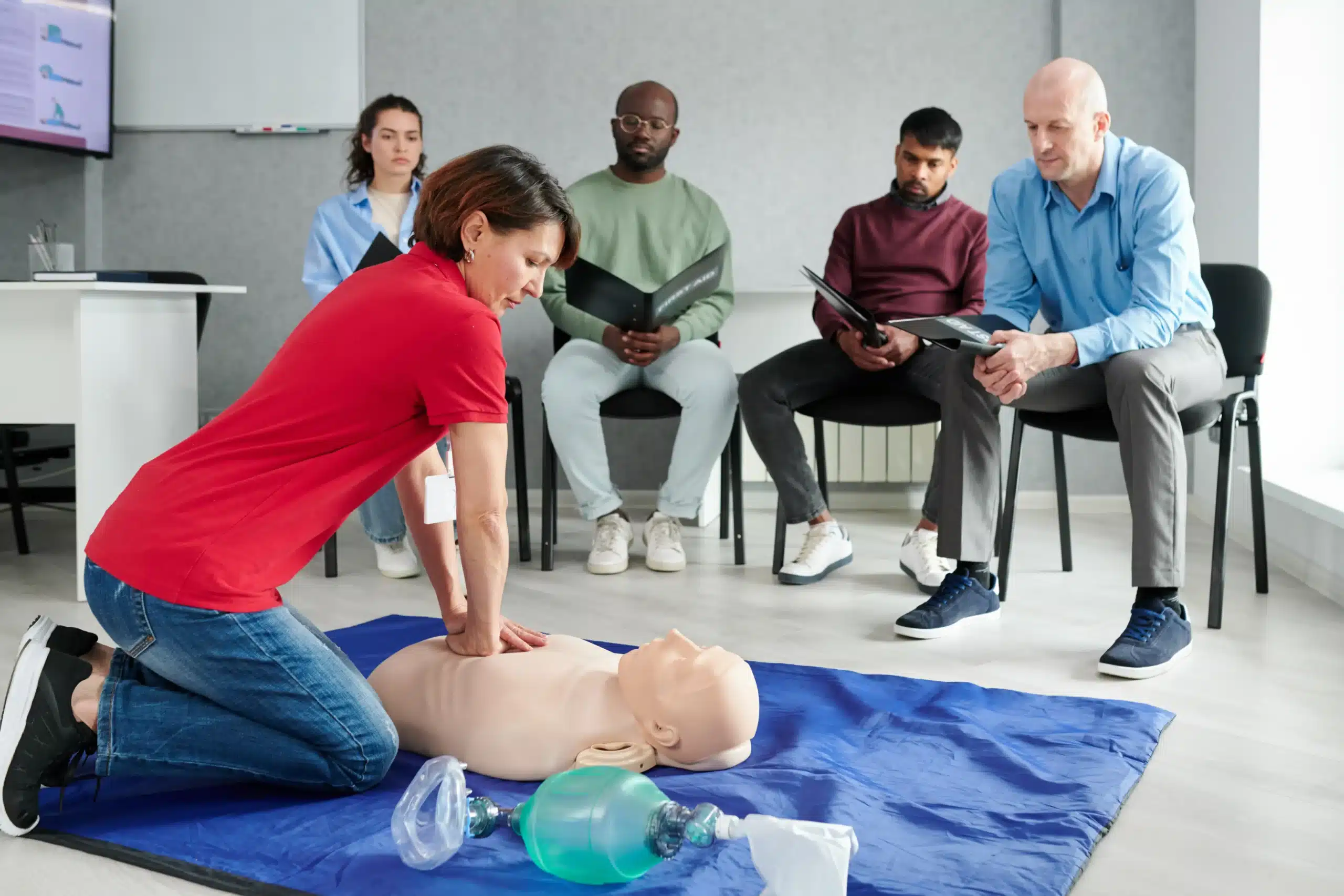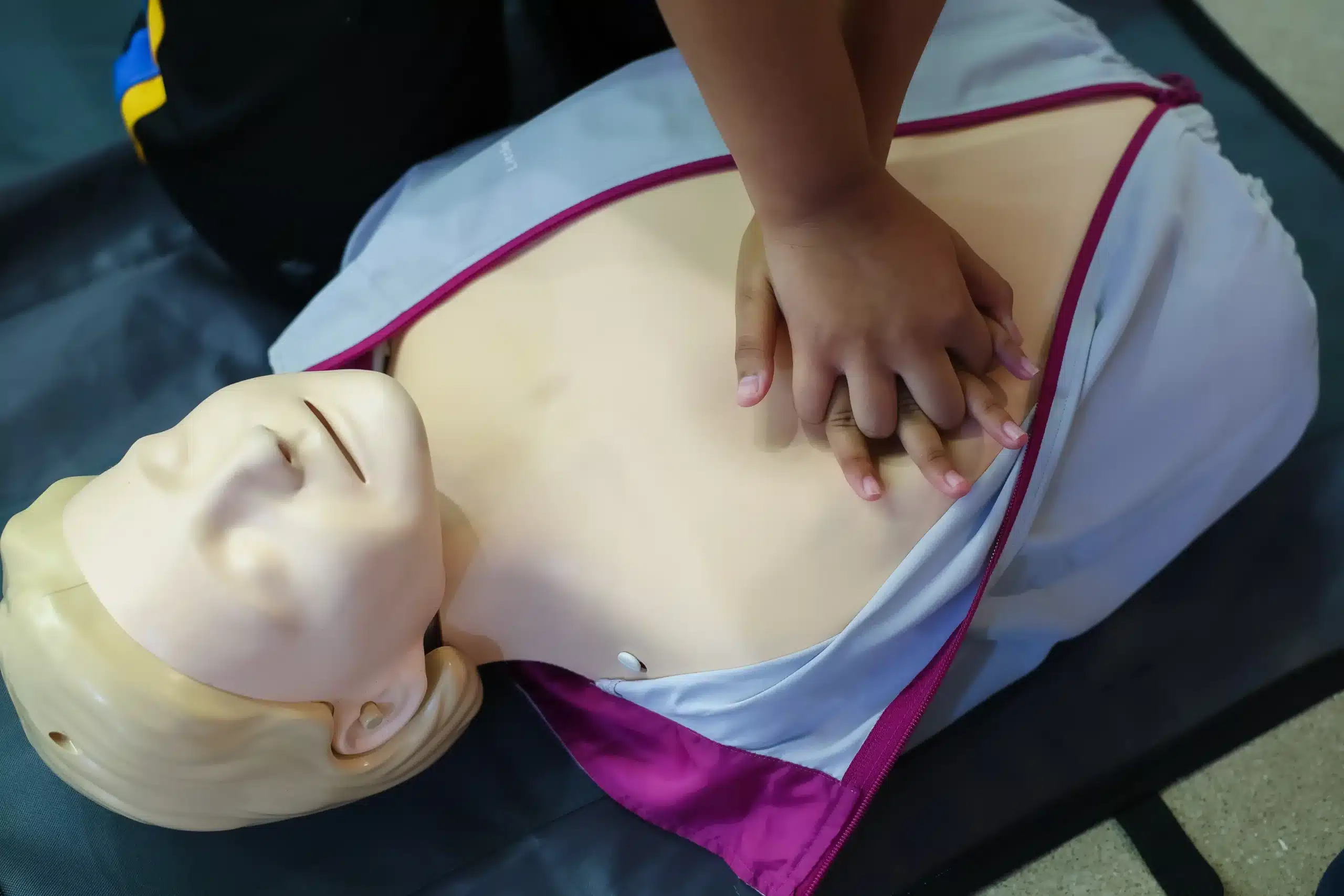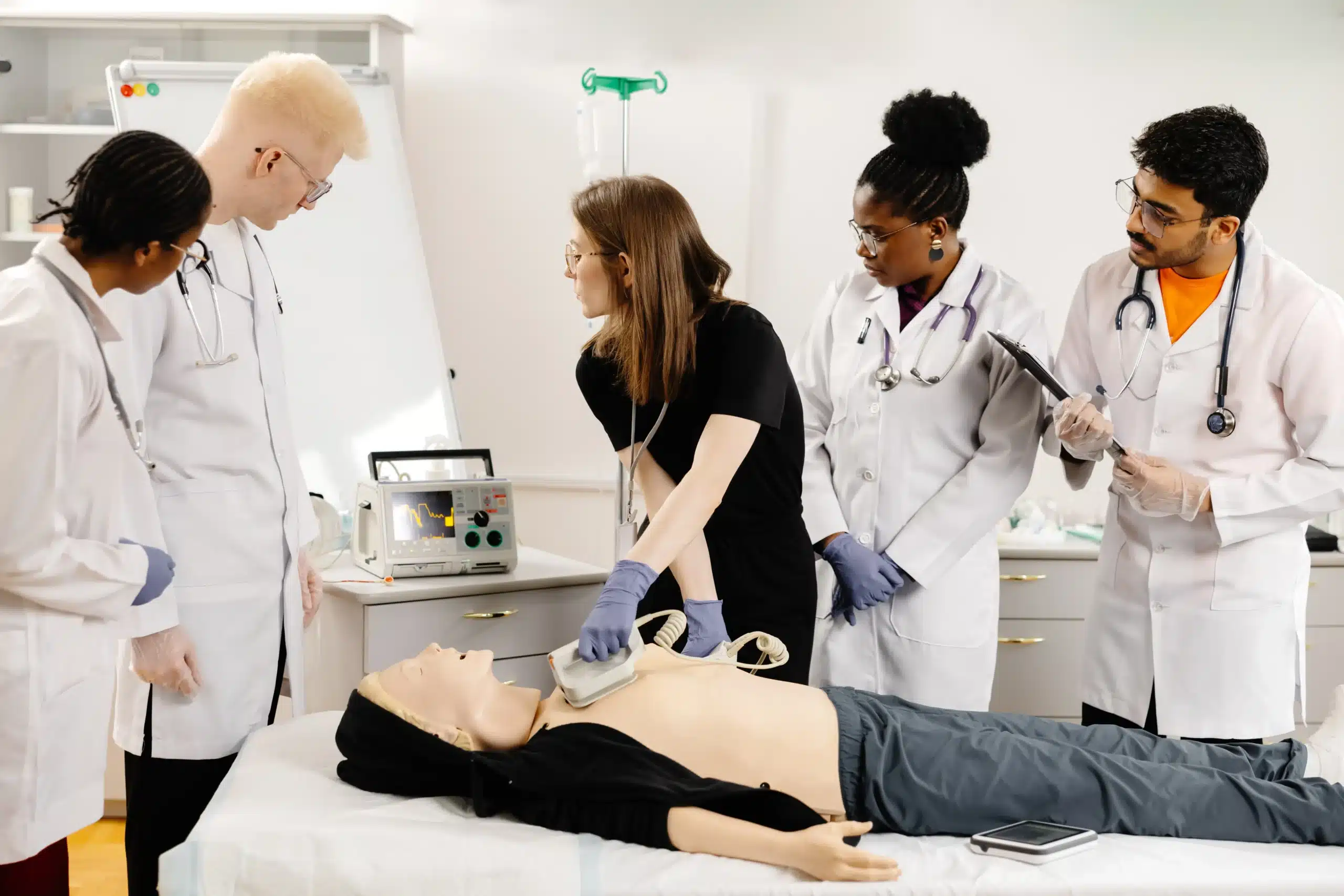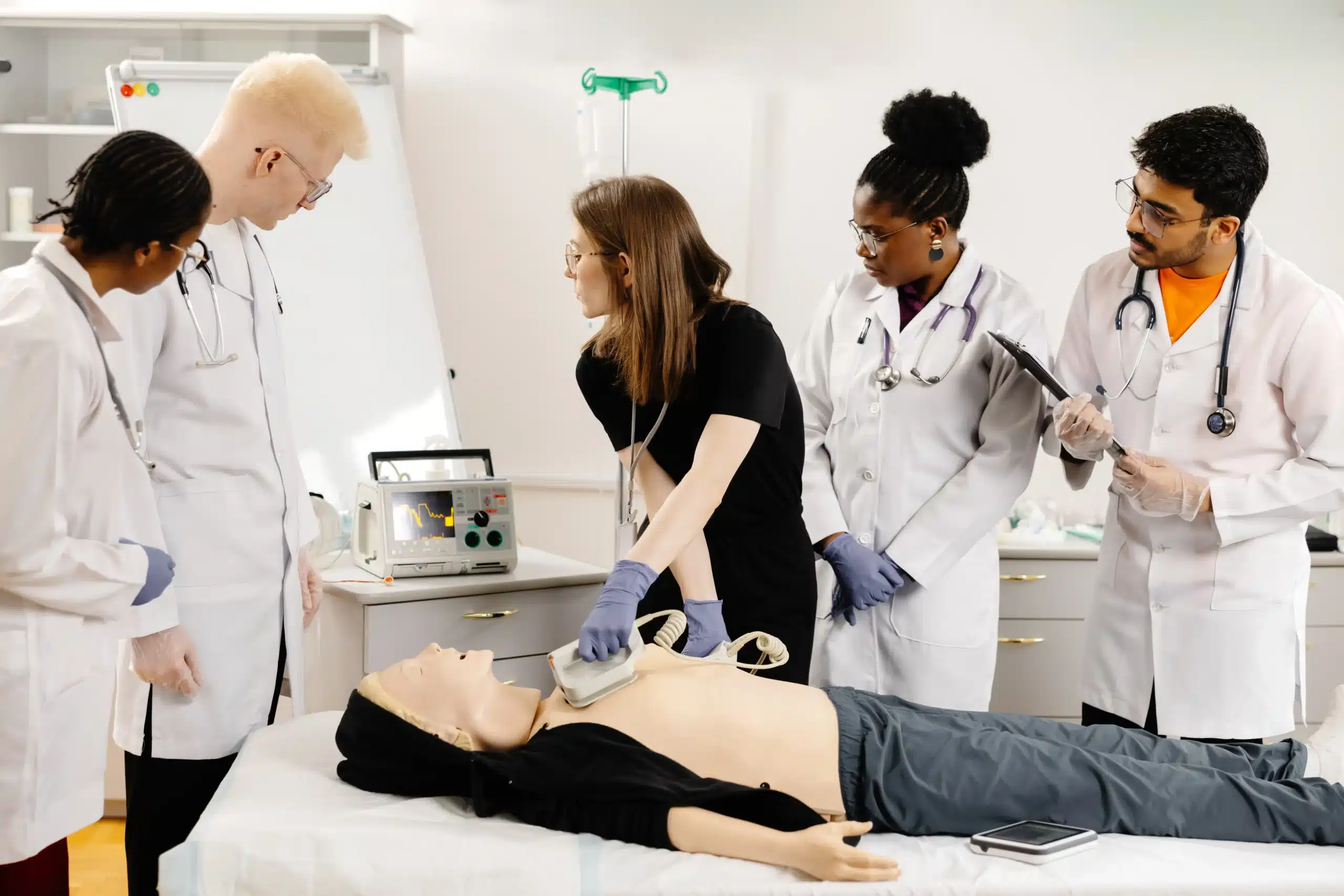Empowering yourself with life-saving skills has never been more convenient, thanks to the availability of online CPR classes in Fairfield. These courses offer a flexible way to learn CPR at your own pace, fitting seamlessly into your busy lifestyle. But with so many online options, how do you choose the right one? This guide will walk you through the essentials of online CPR classes in Fairfield, covering everything from the different types of certifications to the top providers in the area. We’ll also discuss the benefits and drawbacks of online training, address common concerns about online certification, and provide practical tips for maximizing your learning experience. Plus, we’ll explore costs, discounts, and how to ensure your online certification meets your specific needs.
Key Takeaways
- Online CPR training provides a flexible learning experience, but it’s crucial to choose a reputable provider and understand certification requirements. Look for respected organizations like the AHA or Red Cross, and confirm the certification aligns with your workplace needs. Combine online learning with hands-on practice to build essential skills.
- Different CPR courses cater to various needs, so select the right one based on your goals. Whether you’re a healthcare professional, educator, or simply want to be prepared, understanding the differences between BLS, ACLS, PALS, and CPR/First Aid courses is key.
- Active learning strategies and supplemental resources are essential for success in online CPR training. Break down the material into manageable sections, use active recall techniques, and consider hands-on practice opportunities to solidify your skills and confidence.
What are Online CPR Classes in Fairfield?
Online CPR classes in Fairfield offer a flexible way to earn your CPR certification. These courses often blend online learning with in-person skills sessions. This allows you to study at your own pace and still get the hands-on training you need. Many organizations, including the American Red Cross, offer this blended learning format, combining online modules with in-person practice. This ensures you learn the skills and knowledge required for certification. Safety Training Seminars, an American Heart Association (AHA) Training Center, also provides daily CPR classes in Fairfield with online components. These courses cover various certifications, including BLS, ACLS, and PALS, making them convenient for busy professionals while adhering to the latest AHA training standards. When choosing an online CPR course, make sure the certification is from a recognized organization like the AHA or American Red Cross. This is important for meeting workplace requirements and ensuring you receive high-quality training. To learn more about the validity of online CPR certifications, explore resources like CPR For Employment. With the right program, online CPR training can be a convenient and effective way to gain this life-saving skill.
Types of Online CPR Courses
Knowing which CPR certification is right for you depends on your job and lifestyle. Here’s a breakdown of common online CPR courses:
Basic Life Support (BLS)
Basic Life Support (BLS) courses equip you with fundamental CPR skills and how to use an AED. These online CPR courses are essential for healthcare providers, but they’re also valuable for anyone who wants to be prepared for an emergency. BLS certification gives you the confidence to respond effectively if someone experiences cardiac arrest or a breathing emergency.
Advanced Cardiac Life Support (ACLS)
Advanced Cardiac Life Support (ACLS) training builds upon the skills learned in BLS. These advanced courses focus on managing cardiac arrest and other cardiovascular emergencies. ACLS certification is generally required for healthcare professionals like doctors, nurses, and paramedics who regularly handle complex resuscitation situations.
Pediatric Advanced Life Support (PALS)
Pediatric Advanced Life Support (PALS) courses are tailored for healthcare providers working with infants and children. These courses teach how to recognize and treat pediatric emergencies, giving participants the skills to handle critical situations involving younger patients. PALS certification is often a requirement for pediatricians, pediatric nurses, and other healthcare professionals in pediatric settings.
First Aid and CPR Combination Courses
Combining first aid and CPR training provides a well-rounded approach to emergency response. These combination courses cover basic first aid techniques and CPR skills, making them useful for personal and professional use. Whether you’re a parent, teacher, or simply want to be prepared for anything, a combined first aid and CPR certification is a great option.
Top Online CPR Class Providers in Fairfield
Finding the right online CPR class can feel overwhelming with so many options. To help you narrow your search, we’ve compiled a list of reputable providers offering online CPR certification in Fairfield. Remember to verify that the certification meets your specific requirements before enrolling.
Safety Training Seminars
Safety Training Seminars offers a range of CPR certifications in Fairfield, including BLS, ACLS, PALS, and First Aid. As an American Heart Association (AHA) Training Center, they incorporate convenient online components for some certifications. This blended learning approach combines online instruction with in-person skills sessions. Check their website for the most up-to-date schedule and course offerings.
American Red Cross
The American Red Cross provides CPR classes and certifications, including options in Fairfield, NJ. They offer blended learning that combines online coursework with in-person skills demonstrations. Red Cross certification is typically valid for two years.
American Heart Association
Healthcare professionals seeking BLS, ACLS, and PALS certifications should explore the American Heart Association’s RQI (Resuscitation Quality Improvement) program. This program offers a streamlined and efficient way to obtain and maintain these essential certifications.
National CPR Foundation
The National CPR Foundation offers various online CPR courses designed for both individuals and organizations. Their accessible courses provide certification upon completion. Review their website to determine which course best aligns with your needs.
ProTrainings
ProTrainings provides online CPR and First Aid courses suitable for healthcare professionals and the general public. These OSHA-compliant courses offer a flexible learning experience. Explore their website to find the best fit for your requirements.
Benefits and Drawbacks of Online CPR Training
Deciding between online and in-person CPR training? Both have their pros and cons, so let’s break them down to help you choose the best fit.
Convenience and Flexibility
Online CPR training offers unparalleled flexibility. Learn at your own pace, fitting modules into your schedule whenever you have time. This is a major plus for busy professionals, parents, and students juggling multiple commitments. Safety Training Seminars offers convenient online components for some certifications, allowing you to complete coursework from anywhere with internet access. This makes refreshing your CPR skills much easier.
Cost-Effectiveness
Online CPR courses are often more budget-friendly than traditional in-person classes. This makes acquiring this life-saving skill accessible to a wider range of people. Check our Low Price Guarantee for comparison. It’s always a good idea to compare pricing across different providers to ensure you’re getting the best value.
Blended Learning Options
Many providers offer blended learning, combining online coursework with in-person skills sessions. This approach gives you the convenience of online learning plus the hands-on practice crucial for mastering CPR. However, some certifications, especially those required by OSHA, require an in-person skills assessment. The Red Cross offers more information on the differences between online and in-person training.
Quality of Instruction
Just like in-person classes, the quality of online CPR training can vary. Look for courses from reputable organizations like the American Heart Association or the Red Cross. These organizations typically use experienced professionals and follow the latest CPR guidelines. The Red Cross, for example, has a Scientific Advisory Council that reviews its training materials.
Accessibility for Diverse Professionals
CPR certification is essential for many professions, from healthcare providers to those in education, childcare, and even hospitality. Online CPR training makes it easier for people in these diverse fields to get and maintain their certification. CPR For Employment provides a helpful overview of professions that often require CPR certification.
Cost of Online CPR Classes & Discounts
CPR certification is an investment in your skills and the well-being of your community. Understanding the costs associated with these courses, along with potential discounts, can help you find a program that fits your budget.
Pricing Structures
Online CPR classes generally offer various pricing tiers based on the type of certification. Basic Life Support (BLS) certification typically costs less than Advanced Cardiac Life Support (ACLS) or Pediatric Advanced Life Support (PALS) due to the advanced nature of those courses. Many providers, including Safety Training Seminars, aim to offer competitive pricing to make these essential courses accessible. Check with individual providers like the American Red Cross or the American Heart Association for their specific pricing structures. Vacaville CPR Classes also provides transparent pricing information on their website.
Available Discounts and Promotions
Keep an eye out for discounts and promotions that can make your CPR training even more affordable. Some providers offer discounts for group registrations, students, or returning customers. You might also find seasonal promotions or discounts on combined CPR and first-aid courses. Check with your chosen provider, like Vacaville CPR Classes, to see what discounts are currently available.
Low Price Guarantees
Some CPR training providers offer a low-price guarantee, assuring you that you’re getting the best possible value. Vacaville CPR Classes offers this guarantee, demonstrating their commitment to providing affordable, high-quality training. If you find a lower price for a comparable course, they may match or even beat it. This can give you peace of mind knowing you’re not overpaying for your certification. Always compare pricing and features to ensure you’re getting the best combination of quality and value.
How CPR Certification Works
CPR certification blends online learning with crucial hands-on skills. Understanding this process helps you choose the right course and stay prepared.
Online Exam Components
Many CPR courses offer online learning for the knowledge portion. This covers essential concepts like recognizing cardiac arrest, performing chest compressions, and using an AED. Online exams test your understanding of these principles. While convenient, online modules alone don’t fulfill the requirements for certification. Practical skills assessment is a must. The American Heart Association offers a range of courses that combine online learning with in-person skills sessions. This blended approach allows you to learn the basics at your own pace before demonstrating your skills.
Skills Assessment Requirements
The skills assessment involves demonstrating CPR techniques to a certified instructor. This in-person evaluation ensures you can perform CPR effectively in a real-life scenario. You’ll practice chest compressions, rescue breaths, and AED use on a manikin under the instructor’s guidance. Red Cross training emphasizes the importance of this hands-on component. The best approach—in-person, blended, or online—depends on your learning style and access to resources. Consider what works best for you to gain the most from your training. For example, if you learn best by doing, a blended or in-person class might be a better fit than a fully online course.
Certification Validity and Renewal
CPR certification is typically valid for two years. Regular renewal ensures your skills and knowledge remain current. Recertification involves completing a refresher course, often including both online and in-person components. Staying up-to-date with the latest CPR guidelines is crucial for providing effective care. At Vacaville CPR Classes, we offer various courses to meet your certification and renewal needs. Contact us to find the right course for you.
Is Online CPR Certification Accepted?
One of the most common questions about online CPR certification is whether it’s actually accepted. The answer isn’t a simple yes or no. It depends on a few factors, so let’s break it down.
Industries Accepting Online Certifications
Many professions require CPR certification, including healthcare roles (nurses, doctors, paramedics, etc.), lifeguards, teachers, daycare workers, and even some positions in security and hospitality. Often, online CPR certification is perfectly acceptable. However, it’s crucial to double-check with your employer or licensing board to confirm their specific requirements. For example, if you’re looking for CPR classes in Vacaville, contacting a local provider like Safety Training Seminars can give you clarity on local requirements.
Verifying Certification Acceptance
Before enrolling in any online CPR course, verify the certifying organization’s legitimacy. A quick search can usually tell you if an organization is reputable. Look for established organizations like the American Heart Association or the American Red Cross. Also, always check the specific requirements of your employer or licensing board. Reaching out to your HR department or professional organization is a smart move.
Meeting Specific Employer Requirements
Some employers accept online certifications, while others require in-person training. This often comes down to the need for demonstrating physical skills to a certified instructor. If your job involves a high level of hands-on patient care, in-person training might be mandatory. Again, the best way to know for sure is to directly ask your employer or check your industry’s regulatory guidelines. For those in Vacaville, CPR classes offered by Safety Training Seminars meet the in-person training needs of many local employers.
Regulatory Compliance
While online CPR courses offer convenience and flexibility, they don’t always meet regulatory requirements for certain certifications, such as those mandated by OSHA. This is because online courses typically don’t include a live skills assessment. For some professions, demonstrating proficiency in person is a must. If OSHA compliance is a requirement, an in-person CPR class, like those offered by Safety Training Seminars, is your best bet. They provide the hands-on training and assessment needed to meet these stricter standards.
Choose the Right Online CPR Class
Finding the right online CPR class involves a little research to ensure it meets your needs and provides a valuable learning experience. Here’s a breakdown of what to consider:
Assess Your Requirements
Before you start browsing courses, take a moment to think about why you need CPR certification. Are you a healthcare professional needing to maintain your license? A teacher looking to get certified? Or are you simply someone who wants to be prepared for emergencies? Different courses cater to different audiences, so identifying your specific needs is the first step. For example, healthcare providers often require BLS certification, while others might be looking for a more general CPR and first-aid course. Consider also whether you need specific certifications for your workplace or personal goals.
Compare Course Features
Once you know what type of certification you need, compare what different courses offer. Some providers offer classes daily, while others have a more limited schedule. Look for courses that offer a blend of online learning and in-person skills practice. Check if the course covers essential skills like high-quality CPR and the use of an AED. Also, consider your learning style. Do you prefer self-paced learning or a more structured approach? Reading reviews can offer insights into the course content and teaching methods. Think about the level of detail and the format of the materials.
Ensure Accreditation
A crucial aspect of choosing an online CPR class is ensuring the program’s accreditation. Look for certifications recognized by reputable organizations like the American Heart Association (AHA) or the American Red Cross (ARC). This ensures your certification is widely accepted and holds value in your field. If you’re unsure about a program’s accreditation, contact the provider directly to verify. This is especially important if your employer requires certification from a specific organization.
Technical Support and Resources
Finally, consider the support offered by the course provider. Reliable technical support can be invaluable if you encounter any issues during your online training. Look for providers, like Safety Training Seminars, that offer excellent customer service and convenient access to resources. Easy access to course calendars, FAQs, and contact information can make your learning experience much smoother. A provider that prioritizes customer support demonstrates a commitment to student success. Check if they offer extended customer service hours or multiple ways to contact them (e.g., phone, email, chat).
Debunking Online CPR Class Myths
Let’s clear up some common misconceptions about online CPR classes. It’s important to separate fact from fiction so you can make informed decisions about your training.
Legitimacy of Online Certifications
One of the biggest questions surrounding online CPR training is whether the certifications are actually valid. The good news is online CPR certification can be legitimate. The key is to ensure your certification comes from a recognized and trusted organization like the American Heart Association (AHA) or the American Red Cross (ARC). Our courses at Vacaville CPR Classes meet these standards and boast a 98% acceptance rate. Check with your employer or licensing board to confirm they accept online certifications before registering for a class.
Differences from In-Person Training
Online CPR training offers a convenient way to learn the cognitive material, but it’s important to understand how it differs from in-person training. Online courses cover essential knowledge and procedures, but they typically don’t include the hands-on skills assessment required for certain certifications (like those mandated by OSHA). This means you can learn CPR principles online, but you might need to supplement your training with an in-person skills session. The Red Cross highlights this distinction with their CPR classes.
OSHA Compliance
Many professions require OSHA-compliant CPR certification. Since online courses are typically completed remotely, they don’t offer the opportunity to demonstrate your skills proficiency to a certified instructor in person—a critical component of OSHA compliance. Therefore, a purely online CPR course won’t meet OSHA requirements. If your job requires OSHA-compliant certification, look for blended learning options that combine online coursework with an in-person skills evaluation. Contact us at Vacaville CPR Classes to learn more about our blended learning options.
Skill Proficiency Concerns
Developing true CPR proficiency involves more than just understanding the steps; it requires practicing the physical techniques and receiving real-time feedback. Studies show that using training mannequins with feedback mechanisms significantly improves skill development and learner motivation. While online courses can be a valuable part of your training, consider supplementing them with in-person practice to build your confidence and ensure you’re fully prepared for a real-life emergency. Consider our in-person training options at Vacaville CPR Classes.
Succeed in Online CPR Training
Online CPR training offers flexibility, but requires focus and effective strategies to maximize your learning. Here’s how to make the most of your online CPR course:
Effective Study Strategies
Online learning allows you to set your own pace. Break down the material into manageable chunks and schedule regular study sessions. Use the feedback provided by the online platform to identify areas for improvement and reinforce your understanding. Detailed feedback helps improve the quality of CPR, especially for healthcare providers. Don’t be afraid to repeat modules or quizzes to solidify your knowledge. Active recall, summarizing key concepts in your own words, and using flashcards can also be helpful study techniques.
Practical Skills Application
While online CPR training provides a strong theoretical foundation, practical application is crucial. Consider supplementing your online coursework with in-person practice sessions or simulations. These hands-on experiences allow you to develop muscle memory and confidence in performing CPR in real-life situations. Reading stories of CPR successes can further highlight the importance of practical training and the impact CPR-certified individuals have. Remember, CPR is a life-saving skill, and proficiency comes with practice.
Stay Current with CPR Guidelines
CPR guidelines and best practices evolve with ongoing research and technological advancements. Stay informed about the latest updates from organizations like the American Heart Association to ensure your training remains current. New technologies, such as automated feedback devices, can enhance training and improve skill retention. Staying updated ensures you’re prepared to provide the highest quality care.
Leverage Additional Resources
Maximize your learning by exploring additional resources. Many organizations offer supplemental materials, practice tests, and refresher courses. Local resources, like CPR classes in Fairfield, can provide valuable hands-on training and support. Vacaville CPR Classes offers a low price guarantee and various courses, including RQI classes and group discounts. Contact us to learn more about our comprehensive training options.
Related Articles
- Northern CA CPR Directory – Vacaville CPR Classes
- CPR Certification in Vacaville: Your Complete Guide – Vacaville CPR Classes
- Discount Group Classes – Vacaville CPR Classes
- Why CPR is Important in Healthcare – Vacaville CPR Classes
- CPR Myths Debunked: The Truth Behind Lifesaving Techniques
Frequently Asked Questions
Are online CPR certifications accepted in Fairfield? Many employers in Fairfield accept online CPR certifications, especially those from reputable organizations like the American Heart Association and the Red Cross. However, it’s always best to confirm with your specific employer or licensing board to ensure the certification meets their requirements. Some professions, particularly those with OSHA requirements, may necessitate in-person skills assessments.
What’s the difference between BLS, ACLS, and PALS certifications? BLS (Basic Life Support) teaches fundamental CPR and AED skills. ACLS (Advanced Cardiac Life Support) builds upon BLS and focuses on managing complex cardiovascular emergencies. PALS (Pediatric Advanced Life Support) is tailored for healthcare providers working with infants and children. The best choice for you depends on your professional needs and the types of emergencies you’re likely to encounter.
How do I find a reputable online CPR class provider in Fairfield? Look for providers offering certifications from recognized organizations like the AHA or Red Cross. Check reviews and compare course features, including the balance of online learning and in-person skills sessions. Ensure the provider offers reliable technical support and resources. Don’t hesitate to contact providers directly with any questions.
Do online CPR courses meet OSHA requirements? Generally, online-only CPR courses do not fully meet OSHA requirements, as they typically lack the in-person skills assessment component. If you need OSHA-compliant certification, look for blended learning options that combine online coursework with an in-person skills evaluation.
What are the benefits of taking a blended learning CPR course? Blended learning combines the flexibility of online learning with the essential hands-on practice of in-person skills sessions. This approach allows you to study at your own pace while still mastering the physical techniques required for effective CPR. It’s a great option for those who want the convenience of online learning but also recognize the importance of practical experience.
